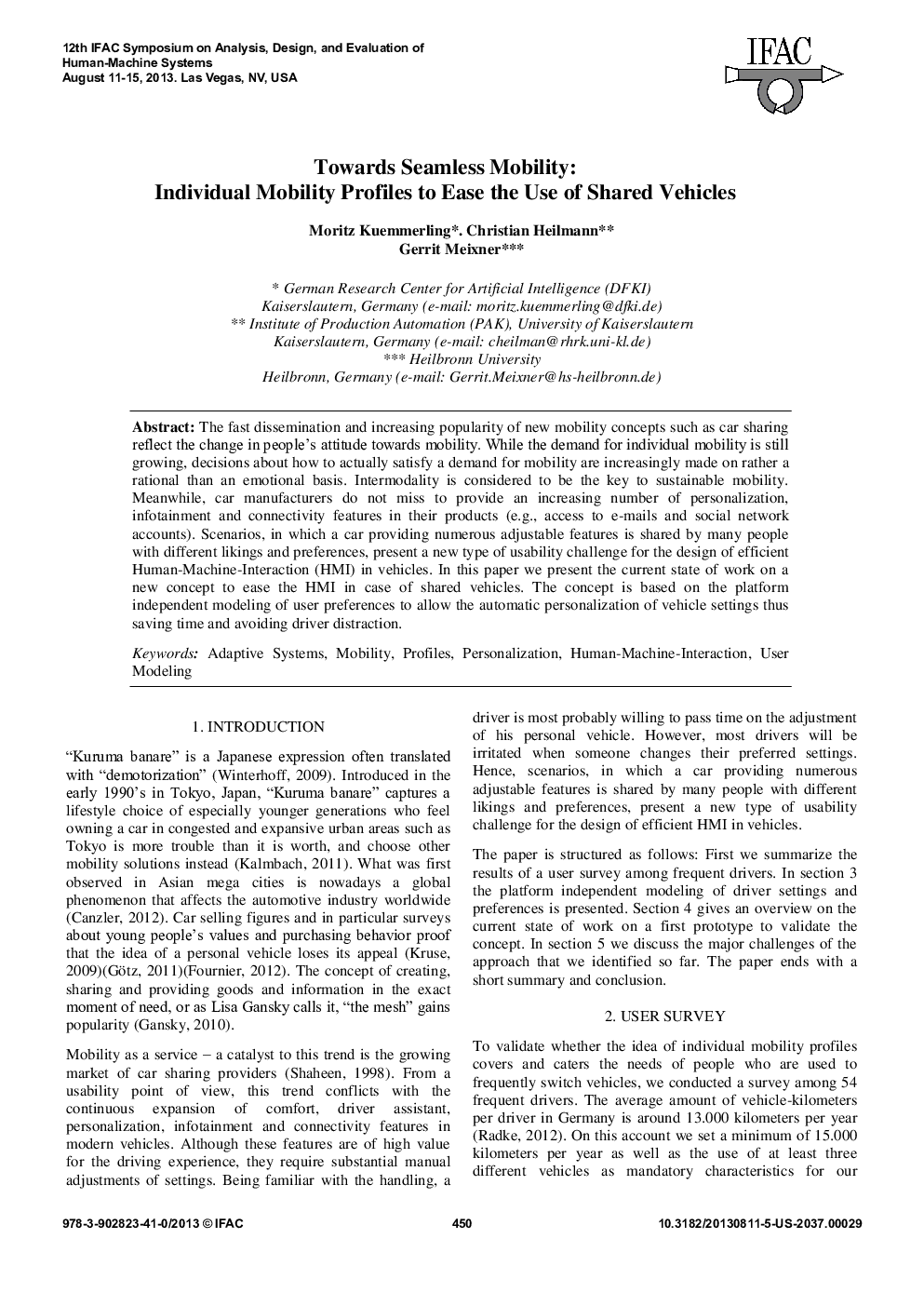| کد مقاله | کد نشریه | سال انتشار | مقاله انگلیسی | نسخه تمام متن |
|---|---|---|---|---|
| 716286 | 892218 | 2013 | 5 صفحه PDF | دانلود رایگان |

The fast dissemination and increasing popularity of new mobility concepts such as car sharing reflect the change in people's attitude towards mobility. While the demand for individual mobility is still growing, decisions about how to actually satisfy a demand for mobility are increasingly made on rather a rational than an emotional basis. Intermodality is considered to be the key to sustainable mobility. Meanwhile, car manufacturers do not miss to provide an increasing number of personalization, infotainment and connectivity features in their products (e.g., access to e-mails and social network accounts). Scenarios, in which a car providing numerous adjustable features is shared by many people with different likings and preferences, present a new type of usability challenge for the design of efficient Human-Machine-Interaction (HMI) in vehicles. In this paper we present the current state of work on a new concept to ease the HMI in case of shared vehicles. The concept is based on the platform independent modeling of user preferences to allow the automatic personalization of vehicle settings thus saving time and avoiding driver distraction.
Journal: IFAC Proceedings Volumes - Volume 46, Issue 15, 2013, Pages 450-454